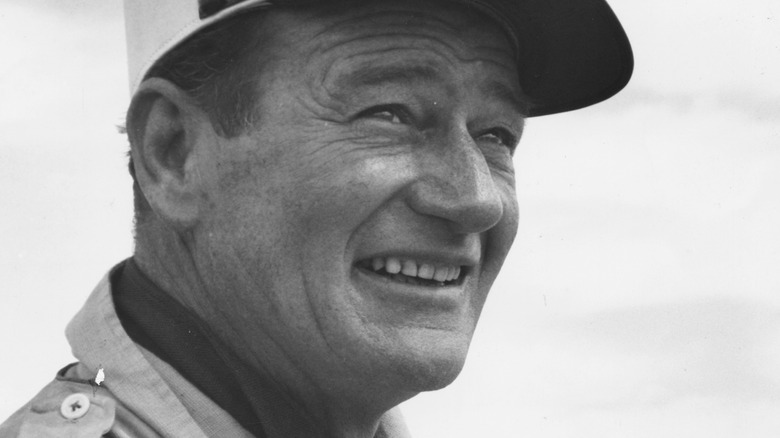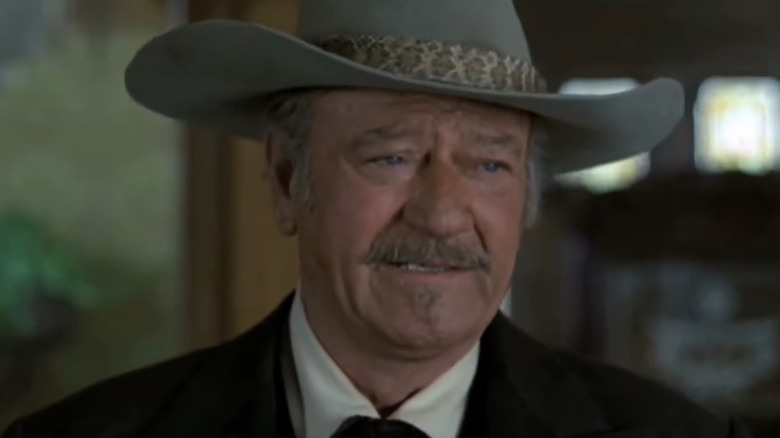John Wayne's Constant Demands Changed The Shootist's Big Ending
When you're such a quintessential American movie star and icon that the Emperor of Japan himself requests a meeting with you (via Yukon News), it would almost seem natural if you demanded your own way whenever you set foot on a soundstage. John Wayne was exactly that kind of larger-than-life presence — a giant of Western movies whose swaggering posture and terse voice were unmistakable to audiences who adored him.
But by 1976, an older Wayne was about to appear in what would be his final Western, "The Shootist." The actor wasn't in good health and died of cancer only a few years later, in 1979 (via History), but the lead of "The Searchers" and "Rio Bravo" still had enough spirit that he required changes to the film's script, and clashed with director Don Siegel over where to place the camera. Wayne was the star here, and that meant he carried some clout about the content and style of the movie.
However, the biggest revision "The Shootist" got from the Duke would be to the film's final minutes.
The Shootist originally had a much bleaker ending
Just like the climax of the source novel "The Shootist" written by Glendon Swarthout, the film depicts the terminally ill, legendary gunfighter J.B. Books (John Wayne) killing several would-be assassins in a bar before he's shot by the bartender (Charles G. Martin). However, the book's ending is even more brutal: Books shoots one person in the back before he's eventually mortally injured and asks Gillom Rogers to kill him. Gillom is also a much darker figure in the novel, and exults in murdering Books before taking his guns.
However, Wayne disliked Books' execution as well as the very idea of a "John Wayne character" being so cowardly as to shoot someone when they weren't looking. Script rewrites were part of his contract, after all. As a result, in the film, the shootout became more "honorable," and Gillom (Ron Howard) instead kills the bartender, then throws the gun away.
Where Swarthout's ending suggested Gillom would continue the cycle of bloodshed, the movie featured Howard's character instead rejecting violence after avenging Books. According to an interview in "The Advocate" (via Jump Cut), Wayne believed Books should "put this kid on the spot to make him realize that my life is not the best for a man to lead." It just depends on which ending you ultimately think suits the story better.

